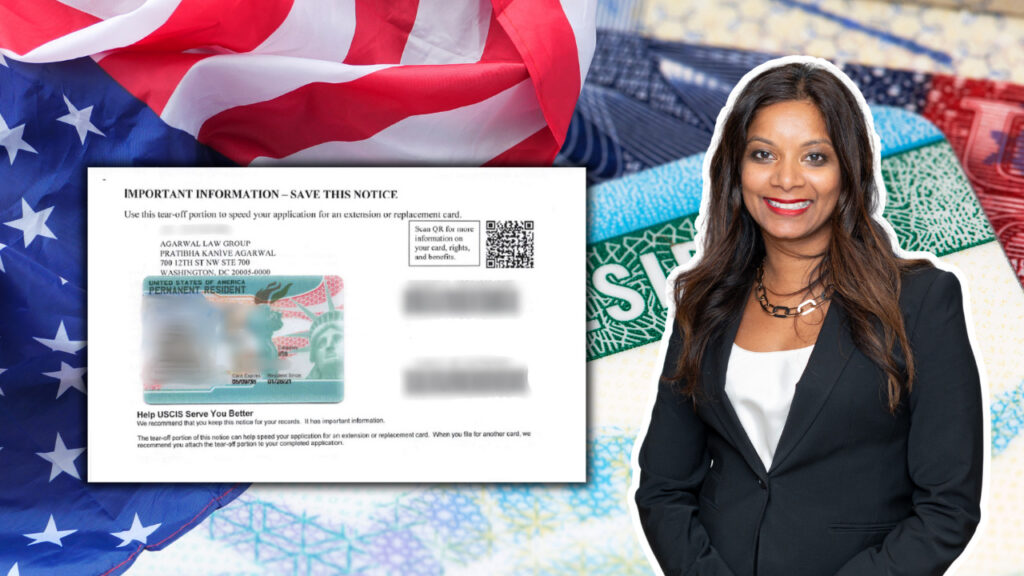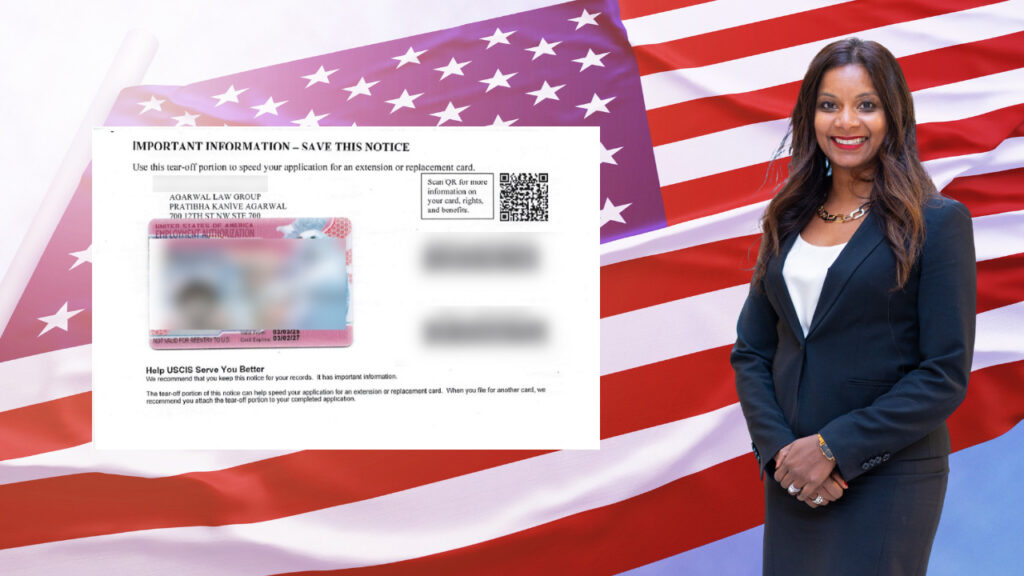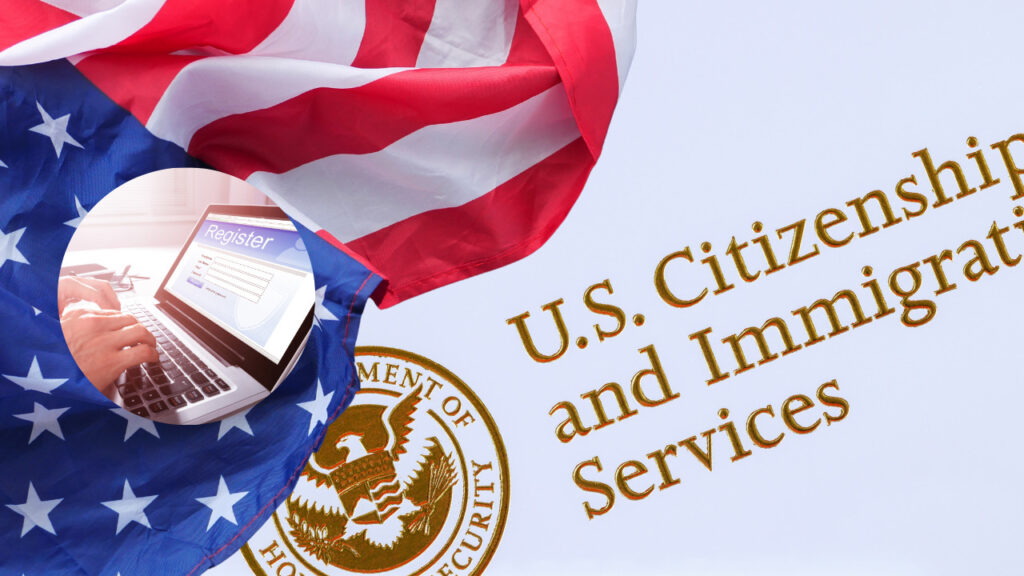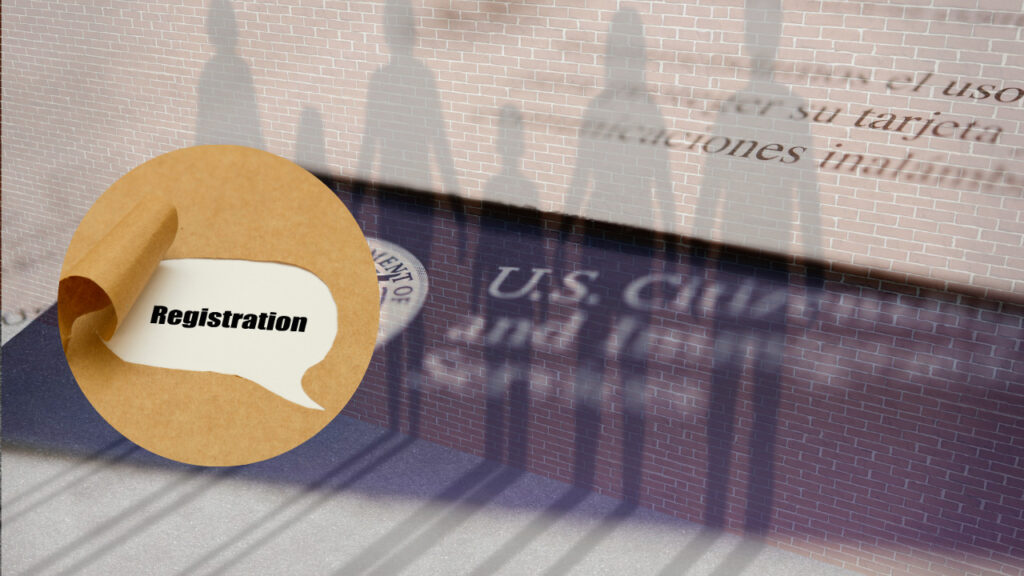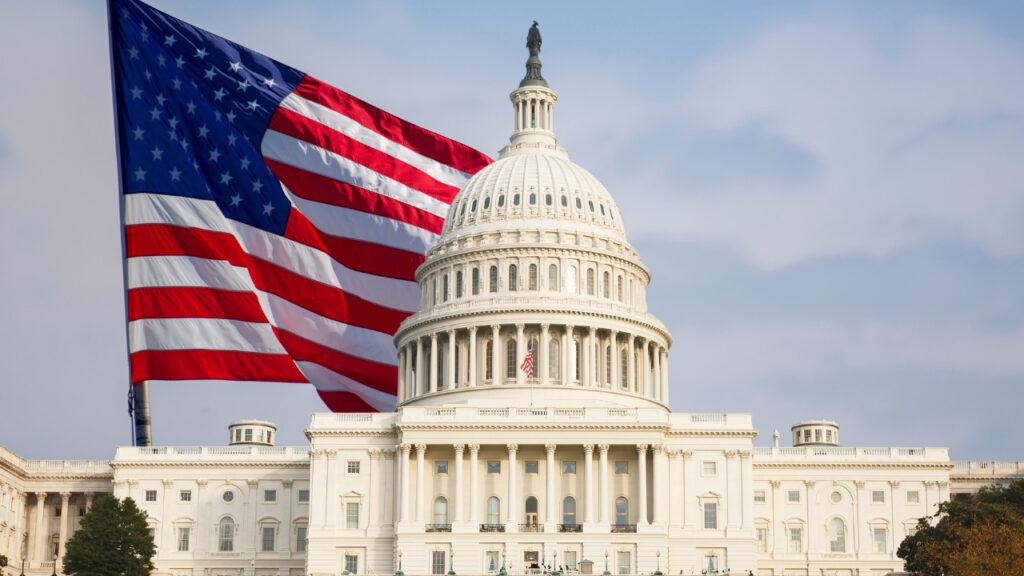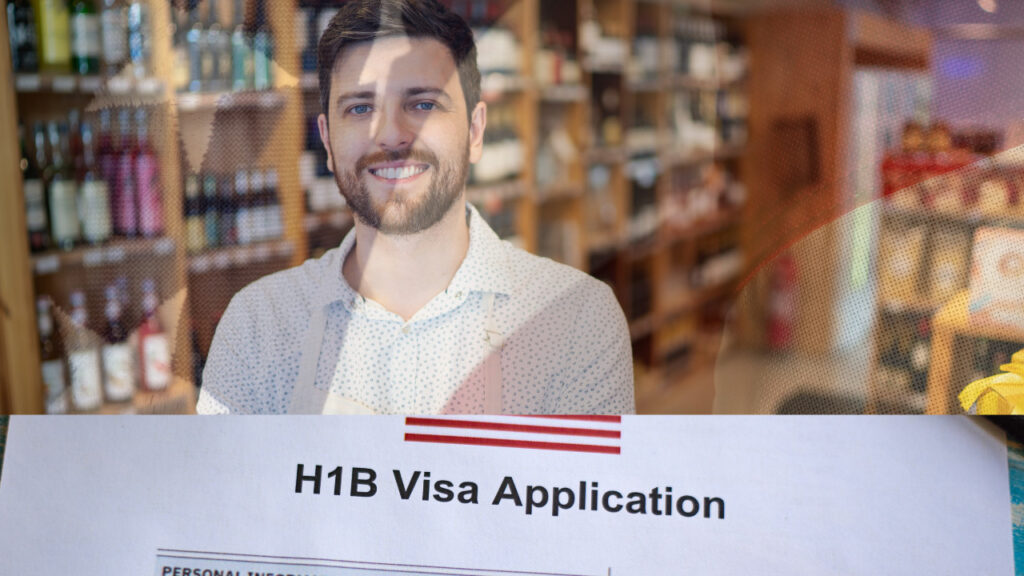Comprehensive Immigration Solutions
Uncategorized
Client Success Story: Green Card Approved Without Spouse’s Help
We are proud to share that one of our clients has successfully received approval to remove the conditions on her green card—without her spouse’s help. She was able to go from a 2-year green card to a 10-year green card on her own. In this case, our client’s U.S. citizen husband had subjected…
Read MoreVAWA Covers More Than Spouses—Child of LPR Secures Approval
We recently received approval for a VAWA self-petition filed on behalf of a client who experienced emotional and physical abuse by their lawful permanent resident (LPR) father since childhood. This case is a reminder that VAWA protections are available not just for spouses, but also for children of abusive U.S. citizens and green card…
Read MoreUNDERSTANDING ALIEN REGISTRATION REQUIREMENTS
What Is Alien Registration? A federal law requires all foreign nationals aged 14 or older who stay in the U.S. for 30 days or more to register and be fingerprinted. Adults 18 and older must carry proof of registration at all times. As of April 11, 2025, this rule is being enforced. Many people…
Read MoreImportant Immigration News: IRS and ICE Agreement & New USCIS Policy on Antisemitism
Recent changes in U.S. immigration policy are raising concerns for immigrant communities. These changes involve tax filings and the review of social media activity, which could impact individuals applying for immigration benefits or currently in the process. IRS and ICE Agreement: What It Means for Immigrants Who File Taxes A new agreement…
Read MoreAbusive Spouse Delaying Your Green Card? VAWA Can Help
If you are married to a U.S. citizen or lawful permanent resident (LPR) and your spouse is abusive, you do not have to wait for them to file an I-130 petition. The Violence Against Women Act (VAWA) allows certain abused spouses to apply for a Green Card on their own without their spouse’s involvement.…
Read MoreUSCIS Provides Update on Alien Registration Requirement
On January 20, 2025, President Trump issued an executive order directing DHS to enforce the alien registration requirement under INA §262. This applies to most noncitizens 14 and older who remain in the U.S. for over 30 days. Failure to register may lead to civil and criminal penalties. Who Has Already Registered? …
Read MoreExecutive Order Restricts Federal Benefits for Undocumented Immigrants
On February 19, 2025, President Trump signed an Executive Order (EO) directing federal agencies to review all programs that provide benefits to undocumented immigrants and take steps to limit access where legally permitted. The EO requires agencies to identify federally funded programs that allow undocumented individuals to receive cash or non-cash benefits and take actions…
Read MoreNew Rule Expands H-1B Eligibility for Business Owners
A new USCIS rule permits H-1B petitions for foreign nationals who have a controlling interest in the petitioning company. Known as “beneficiary-owners,” these individuals can now qualify for H-1B status if they meet standard eligibility requirements. However, the initial approval and first extension are limited to 18 months. The rule clarifies that beneficiary-owners…
Read MoreWhat is PERM? Understanding the First Step in Employment-Based Green Cards
PERM (Program Electronic Review Management) is the first step in most employment-based Green Card applications. It is a labor certification process managed by the U.S. Department of Labor (DOL) to ensure that hiring a foreign worker will not negatively affect U.S. workers. Employers must prove that no qualified, willing, and available U.S. workers can fill…
Read MoreH-1B Employers: Know When to File an Amended Petition
Has your H-1B employee moved or substantially changed job duties? USCIS requires employers to file an amended H-1B petition before any material change in employment, such as a change in work location or position. Please note, an amended petition is not required if the new worksite is within the same metropolitan statistical area…
Read More
